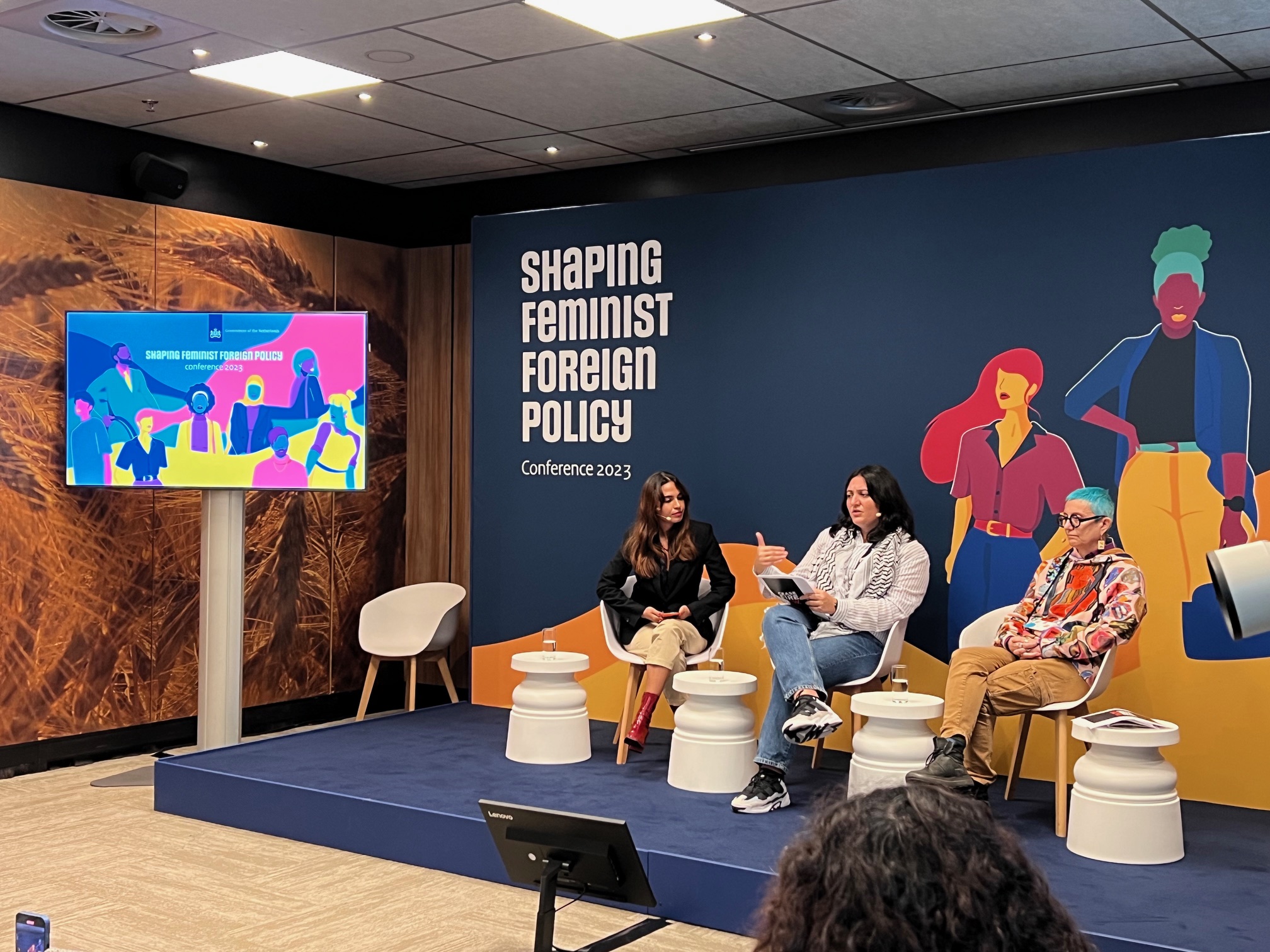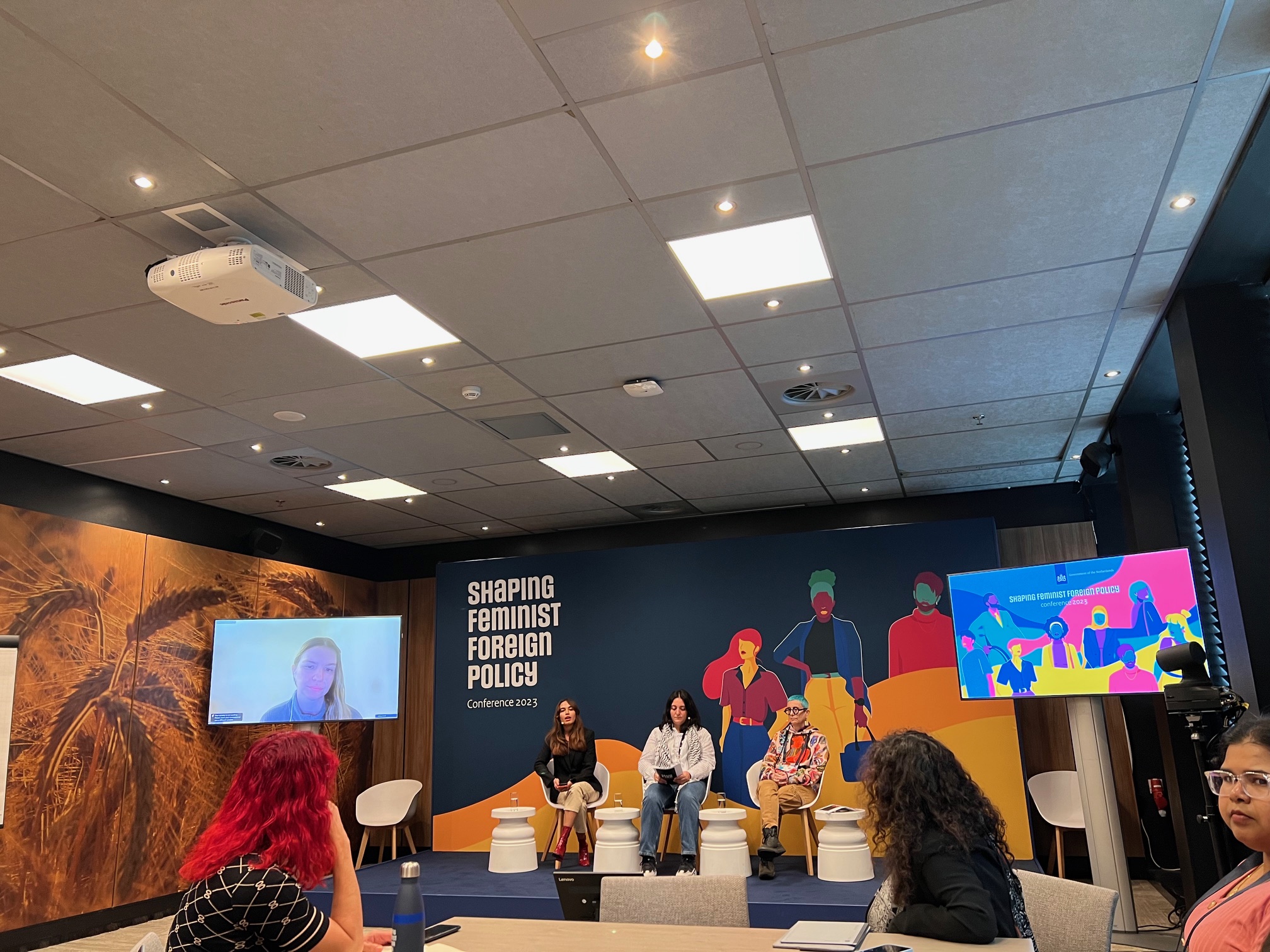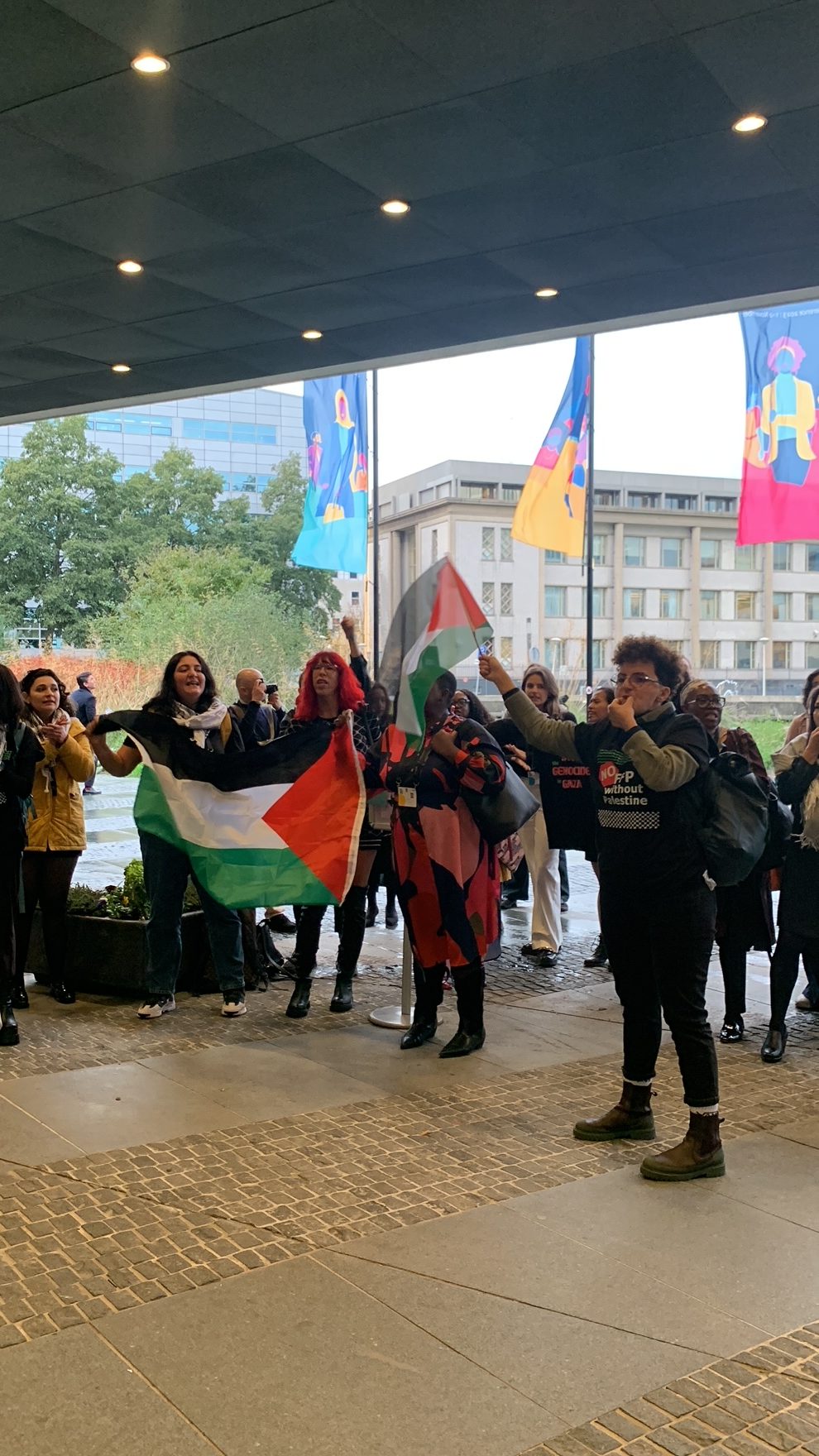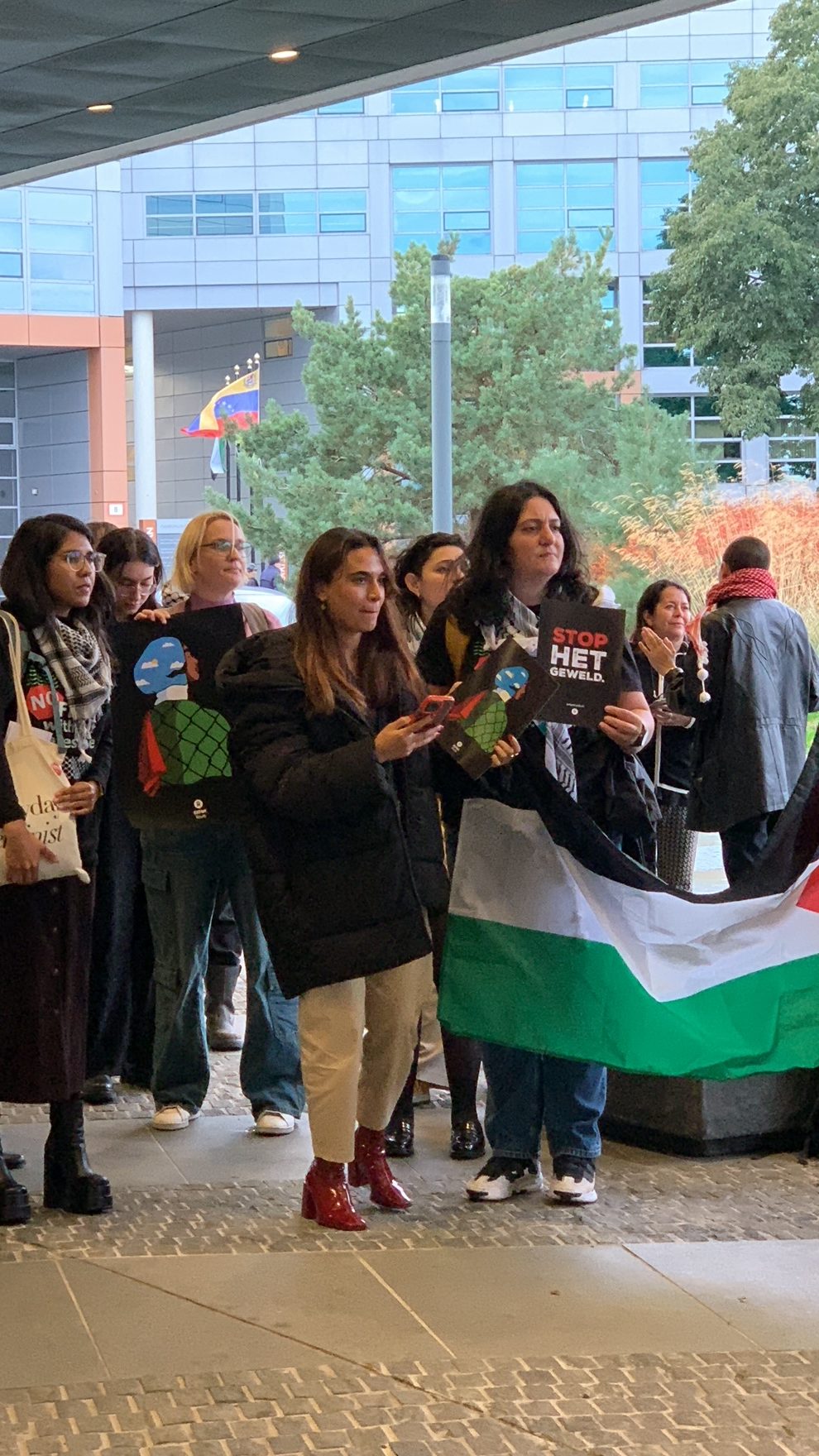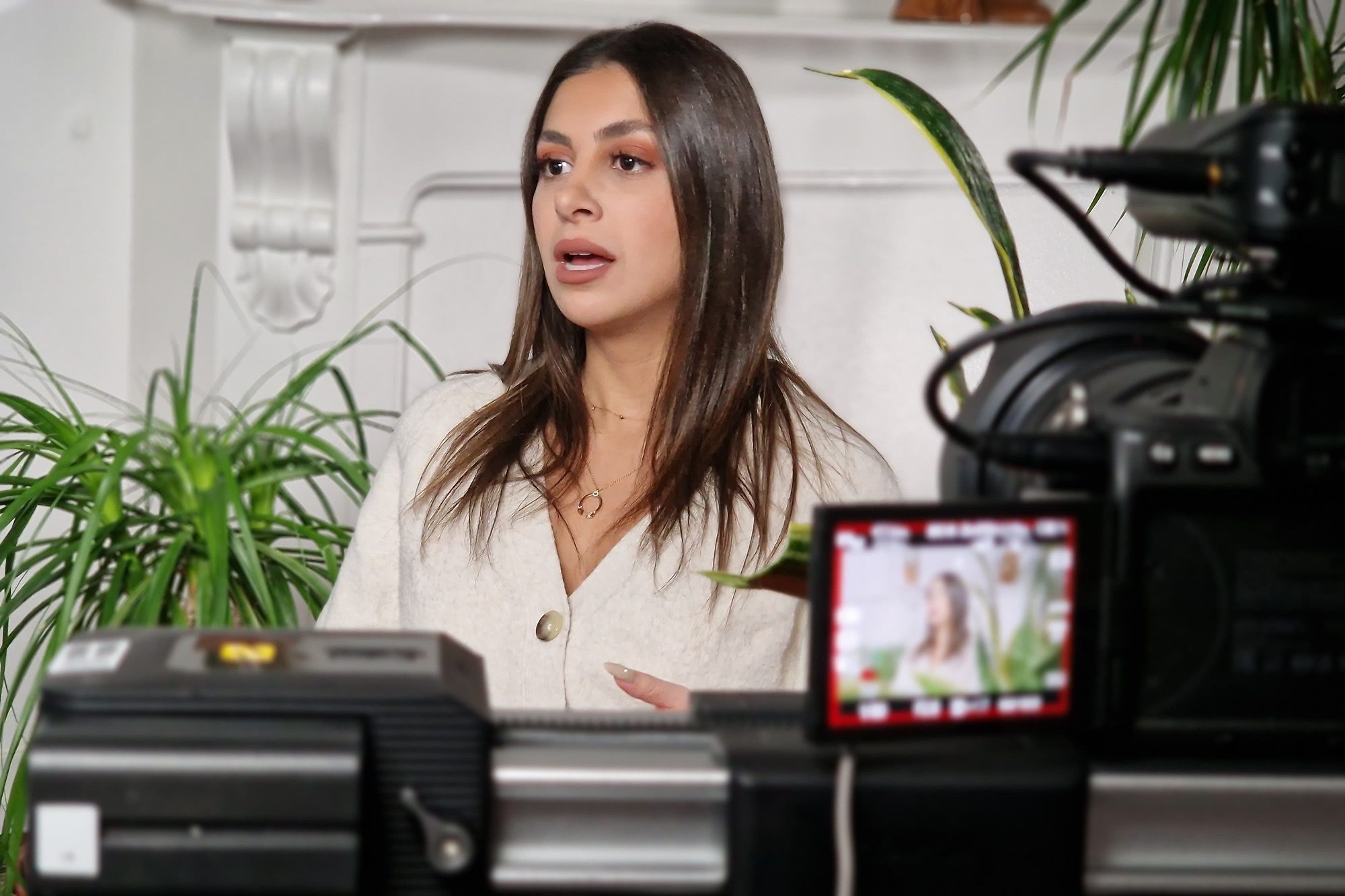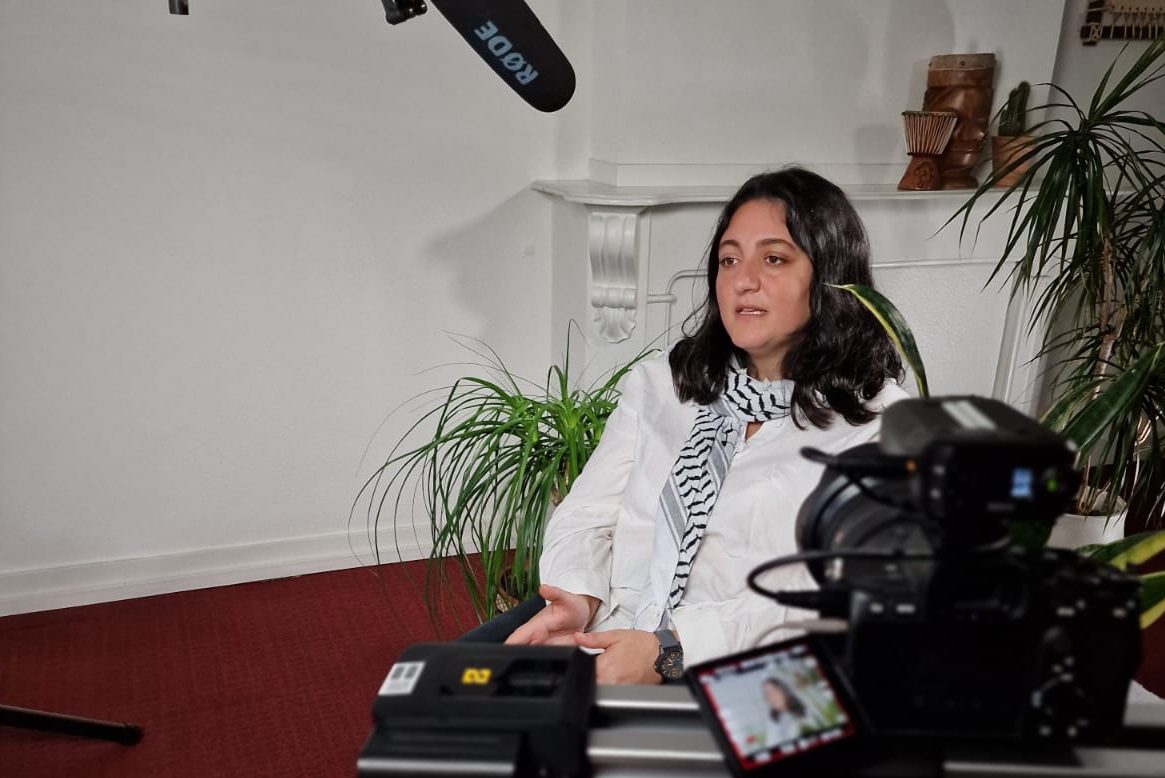The Shaping Feminist Foreign Policy Conference 2023 (SFFP) held in The Hague, Netherlands, on November 1 and 2, provided a platform for global dialogue on feminist foreign policy. Organized by the Dutch government, the conference aimed to discuss issues related to equal rights and global equality, with over 750 participants from more than 40 countries. Among them were Hayat Mirshad, FEMALE’s Executive Director, and Stephanel Beaino, FEMALE’s Digital Marketing Coordinator, who contributed to the discussions.
The SFFP 2023 featured three plenary sessions, 13 breakout sessions, 25 networking stands, and three art exhibitions. The diverse agenda aimed to facilitate conversations on various aspects of feminist foreign policy, providing participants with opportunities to share perspectives and insights.
View this post on Instagram
Decolonization and Partnerships: FEMALE Takes the Lead
Hayat Mirshad, a driving force behind FEMALE, emerged as a main speaker in a pivotal panel discussion on the decolonization of development cooperation and partnerships. Organized by Oxfam Novib, the panel aimed to unravel the complexities of decolonization within the development sector. Addressing critical questions about the transformation of the current system, geopolitical shifts, and the roles of stakeholders in positions of power, the session became a crucible for reimagining a more inclusive, secure, equitable, and sustainable world.
The panelists, including Hayat Mirshad, delved into Oxfam’s new vision of authentic partnerships, prompting a deep introspection into the roles institutions and organizations play in perpetuating existing systems. The discourse went beyond theory, urging organizations to unlearn traditional leadership models, change decision-making processes, and actively contribute to racial justice.
Opposing Voices and a Symbolic Walk-Out:
The first day of the conference was not without moments of dissent. Some attendees voiced their objection to European countries’ reluctance to call for a cease-fire and end of the genocide in Gaza. The symbolic walk-out at the end of the day underscored the urgency of addressing ethnic cleansing and striving for peace. It became a poignant reminder of the work yet to be done in advocating for change on a broader scale.
FEMALE’s Impactful Interviews:
Hayat Mirshad and Stephanel Beaino seized the opportunity to amplify FEMALE’s narrative through interviews with RNW Media and Oxfam Novib. They shared insights into the feminist movement in Lebanon, highlighting both the backlash faced and the positive impact created by FEMALE. These interviews served as beacons of inspiration, shedding light on the resilience of feminist movements in the face of adversity.
Networking for Change:
Beyond formal sessions, the conference provided a unique space for networking and dialogue on critical global issues. FEMALE engaged with diverse groups, fostering connections and discussions on topics such as decolonization and the Israeli war and occupation. The exchange of ideas solidified the conference’s role as a catalyst for change, empowering participants to carry the momentum forward in their respective regions.
While the importance of the Shaping Feminist Foreign Policy Conference 2023 cannot be understated, it’s essential to view it as a part of the ongoing global conversation on feminist foreign policy. FEMALE’s participation and contributions, particularly in the decolonization panel, reflect a commitment to dialogue and positive change. As we reflect on the conference, let it serve as a stepping stone for continued conversations and collaborations, recognizing that the journey toward global equality is an ongoing process that requires sustained effort and cooperation.


